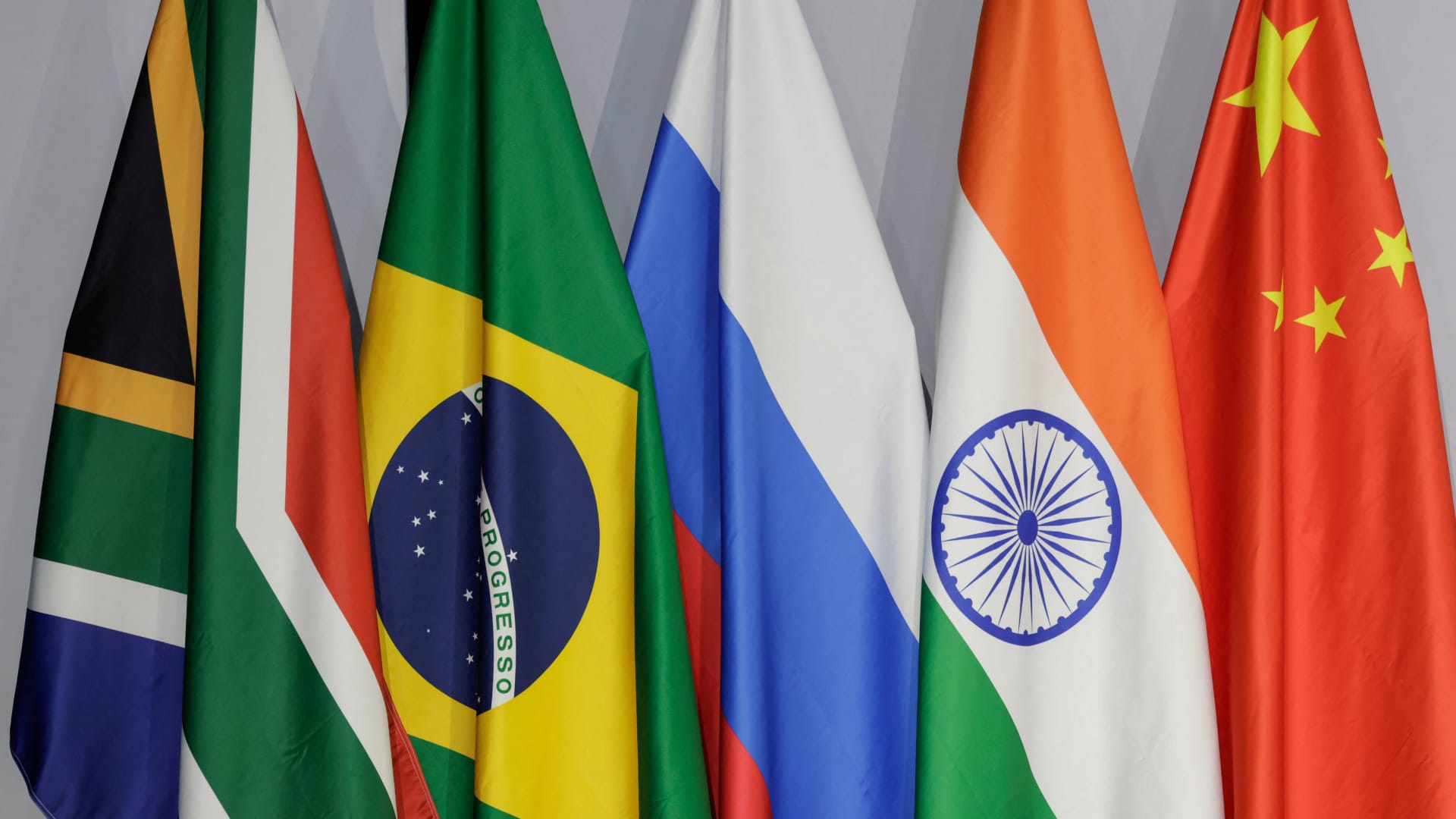SINGAPORE — Sanctions imposed by the West on Russia are pushing the BRICS nations closer, said oil executives at the recent APPEC conference in Singapore.
“Looking at the oil markets today … the Western sanctions on Russia are working. They’re working in the sense that they’re creating less or lower revenues, lower invoice prices for Russian goods,” said Russell Hardy, CEO of energy trading firm Vitol.
Last year, following Russia’s invasion of Ukraine in February, the Group of 7 nations introduced a oil price cap mechanism which limited revenue for the Kremlin’s war coffers while retaining Russian flows to the global market.
Among the spate of sanctions were the European Union adoption of an anti-circumvention tool in June to restrict the sale, supply and export of specified sanctioned goods and technology to certain third countries acting as intermediaries for Russia. In May, the G7 announced the bloc’s intentions to limit trade in Russian diamonds.
However, these sanctions could also lead to other unintended knock-on consequences which Hardy considers “negative.”
“The flip side of sanctions is that it is creating stronger bonds between BRICS countries, which in turn is a sort of an opposite force, of polar opposites, to Western politics,” he said.
The BRICS alliance includes Russia, as well as composed Brazil, India, China and South Africa. The bloc met last week and invited oil heavyweights including Saudi Arabia and the UAE — as well as Iran, Ethiopia, Egypt, Argentina — to join the alliance in 2024.
Everybody is irritated by the U.S. government, the U.S. Treasury sanctioning … So people say is there any way to create a counterforce, counterbalance to G7 or G20? BRICS is the candidate.Fereidun FesharakiFGE Chairman
“I think that’s a very negative aspect,” Hardy added, raising his concerns for the next year or two as Russian traders “take the opportunity to forge those bonds between Russian energy supply and the BRIC countries.”
The BRICS nations have had different brushes in their relationships with the West.
For China, tensions with the U.S. have risen on several fronts including diplomatic, trade and technology, with both sides restricting exports in a tit-for-tat move.
Meanwhile, India and China have also both ramped up their imports of discounted Russian crude since the war in Ukraine, with Moscow leapfrogging to become India’s leading source of crude oil and accounting for about 40% of India’s crude imports.
“Everybody is irritated by the U.S. government, the U.S. Treasury sanctioning … So people say is there any way to create a counterforce, counterbalance to G7 or G20? BRICS is the candidate,” Fereidun Fesharaki, chairman of energy consultancy Facts Global Energy, said at a panel discussion during the event.
At the recent BRICS summit in South Africa, Brazilian leader Luiz Inácio Lula da Silva highlighted that the alliance is continuing to assess the possibility of a common currency.
During a state visit to China in April, he also reportedly called for a reduced reliance on the U.S. dollar for global trade.
But Fesharaki said that de-dollarization, or shifting away from trading in the greenback, is still a long way off.
“Nobody can replace the U.S. dollar. The U.S. dollar is very, very powerful,” he acknowledged.
“In fact, if any currency was offered to replace the U.S. dollar, the turbulence in the oil prices [will be] so dramatic. Nobody wants it actually.”
